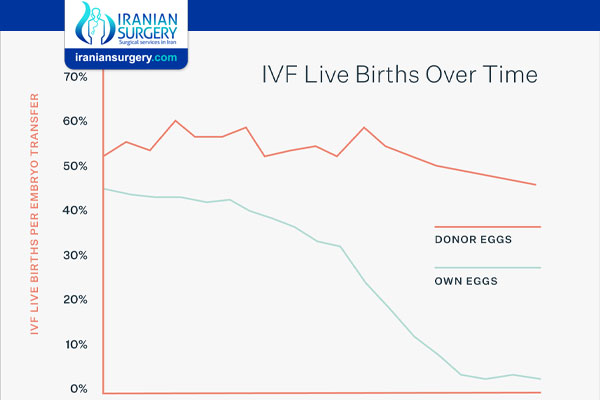Egg Freezing Success Rates
Egg Freezing Success Rates
Egg freezing for IVF: What are the success rates?
What does new research on egg freezing success rates suggest?
Determining an accurate egg freezing success rate has been quite a challenge in the past. This is largely due to the slow rate of data collection compared to fast-paced advancements in egg-freezing technology.
But that's bound to change because researchers have discovered a new model for predicting egg freezing success rates. And it's super reliable because it considers two critical factors; a woman's age at the time of freezing and the number of eggs she has frozen. With that data, it becomes much easier to determine the chances of a healthy pregnancy after egg-freezing.
For instance, researchers examined 520 healthy, fertile women at Brigham and Women's Hospital, Boston, and the findings were as follows:
. Women under 35 who freeze 10-20 eggs have a 70-90% chance of at least one live birth
. If they undergo another cycle and increase the number of eggs frozen to 20, their chances jump to 90%
What's the importance of age in determining success rate?
As we mentioned, age is just as critical as the number of eggs frozen in determining the success rate. And the younger a woman is when undertaking the procedure, the better. But what's the logic behind it?
For starters, a woman's fertility changes drastically, especially in her mid-30s. Even more critical, the chances of developing a genetically healthy embryo decrease with aging, i.e., egg quality diminishes as a woman ages.
All this means is that a woman should freeze her eggs while she’s younger and then IVF can help her achieve a successful pregnancy when she’s ready. That's because:
. Younger women have top-quality eggs that are less likely to cause genetically-related embryo health complications.
. Younger women are more likely to respond positively to the egg-freezing treatment prep, elevating the success rate.
. Besides quality, younger women produce a higher quantity of eggs in one cycle, translating to higher egg-freezing success rates.
Other factors that may affect the success rate of egg freezing
A woman's age and the number of their frozen eggs, although critical, aren't the only determinants of the egg-freezing success rate. Other factors include:
. Menstrual health
. Uterine health/environment
. Existence/presence of any fertility issues
. The sperm donor's age
. Sperm quality
. Lifestyle habits, e.g., excessive drinking or smoking, may reduce the egg-freezing success rate
Conclusion: Egg freezing success rate
It's evident that egg-freezing success rates have improved throughout the years, thanks to technological advancements. Notably, the new model of measuring success rates based on the woman's present age is a dramatic improvement from the traditional method that grouped women into age groups.
We're confident to state that the new data-driven, on-the-go model of predicting egg-freezing success rate is a significant stride in fertility treatment.
Source:
. https://www.pfcla.com/blog/egg-freezing-success-rates-during-ivf


